Pogues star Shane MacGowan dead at 65
Some of music’s biggest names have paid tribute to the “booze-filled bard”, Pogues star Shane MacGowan, who has died at the age of 65 after suffering years of ill health.
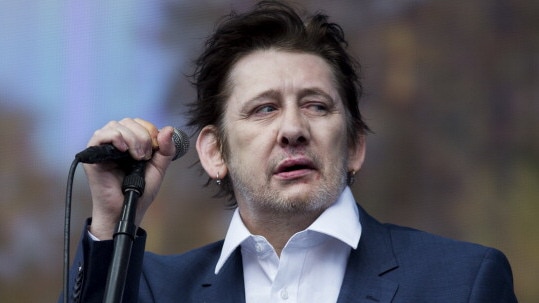
Music
Don't miss out on the headlines from Music. Followed categories will be added to My News.
Tributes have poured in for Shane MacGowan, the singer-songwriter who fronted Celtic folk-punk band The Pogues, with Australian musician Nick Cave describing him as the “greatest songwriter of his generation”.
“A true friend and the greatest songwriter of his generation. A very sad day,” Cave said.
The Pogues — named after the Irish Gaelic phrase “póg mo thóin” (“kiss my arse”) — carried MacGowan to fame before jettisoning him over the alcohol and drug abuse that dogged much of his life.
His 1987 Christmas classic – Fairytale of New York, a duet with Kirsty MacColl – recounting a skid-row romance, is a festive staple, its ragamuffin charm standing out against syrupy standards.
Derry Girls actor Siobhan McSweeney said that MacGowan “was the voice of London for us Irish”.
“When I was scared about moving here he lured me over with songs about chancers, drinkers, lovers, poets and scoundrels. That’s the place for me, I thought! He also taught me how to miss home, whatever that may be. Damn shame, Shane.”
The 65-year-old. who had battled health issues for decades “died peacefully” early Friday morning, with his wife Victoria and family by his side.
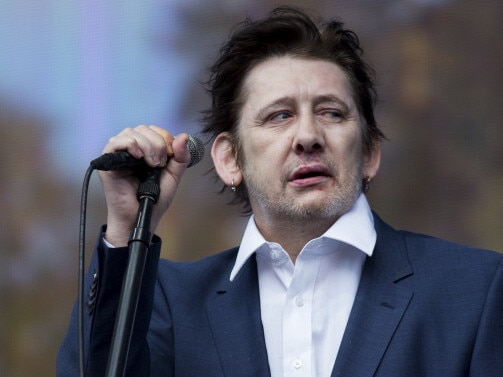
Irish prime minister Leo Varadkar also remembered the iconic rocker.
“Sorry to hear that Shane MacGowan has passed. He was an amazing musician and artist. His songs beautifully captured the Irish experience, especially the experience of being Irish abroad.”
Irish President Michael D Higgins said news of MacGowan’s death was “particular poignant” as it was so close to fellow Irish musician Sinead O’Connor’s. In a heartfelt message, he said: “Born on Christmas Day, there was perhaps some form of destiny which led Shane to writing Fairytale Of New York, the timeless quality of which will surely mean that it will be listened to every Christmas for the next century or more.”
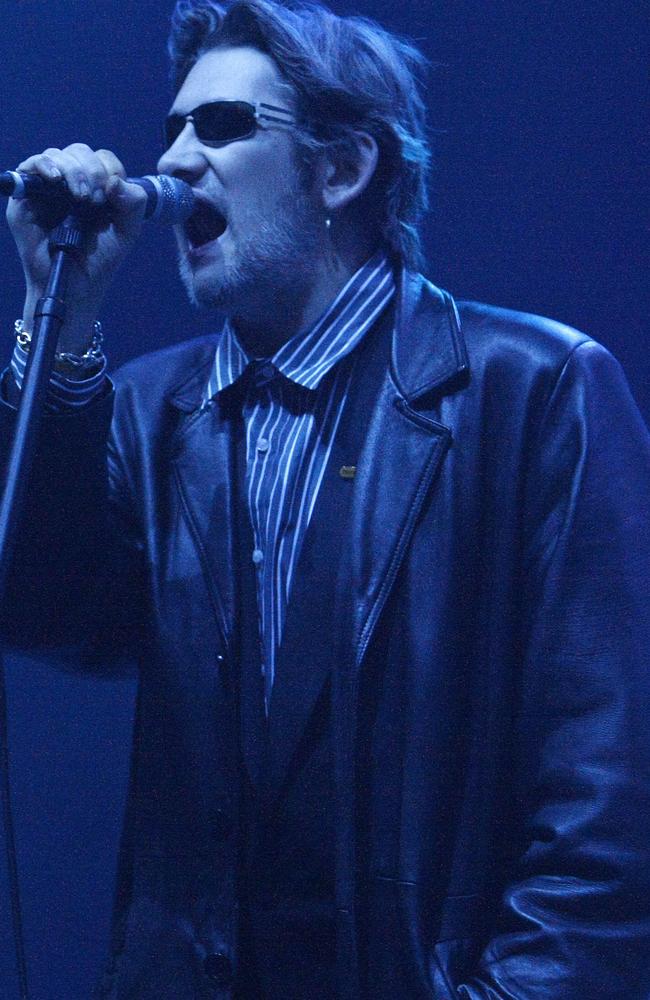
The Libertines’ co-frontman Carl Barât said in a post on X/Twitter: “So saddened to hear about Shane’s passing today. His storytelling enriched our worlds no end as did the nights we spent with him.
“As an artist he was untouchable and will always be with us. Our hearts go out to all who knew him.”
Billy Bragg also paid tribute to MacGowan, calling him “one of the greatest songwriters of my generation” in a social media post.
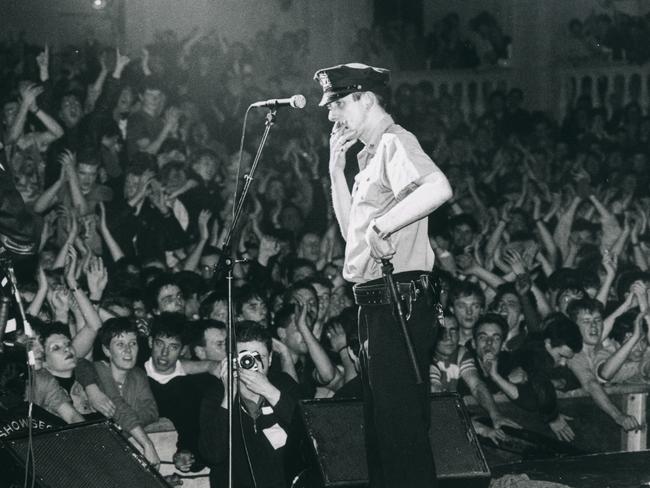
“Sorry to hear of the demise, after a long illness, of one of the greatest songwriters of my generation, Shane MacGowan,” Bragg wrote.
“The Pogues reinvigorated folk music in the early 80s and his songs put the focus onto lyric writing, opening doors for the likes of myself and others.”
THE IRISH POET
MacGowan seemed like a character from his own songbook and was renowned for his dishevelled appearance, sparsely toothed mouth and often-slurred stage performances.
His lyrics gave a tender and profane voice to the experiences of the Irish and the Irish diaspora, framed in a rousing pub-anthem style.
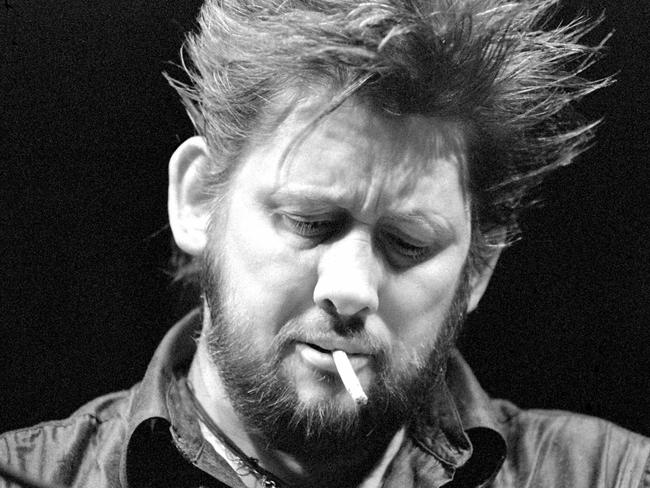
The Body of an American, released in 1986, featured in hit television series The Wire at the whiskey sodden wakes of fallen officers of the Baltimore Police Department.
“From his concrete-mixing voice that is by turns incoherent and lyrical, and his devil-may-care lifestyle to the rough tenderness of his world view, he is the original death-or-glory antihero,” wrote critic Liam Fay.
PUNK IN WAITING
Although considered quintessentially Irish, Shane Patrick Lysaght MacGowan was born in England to Irish parents on December 25, 1957.
He claimed that as a five year-old he was given two bottles of Guinness a night. The teenage MacGowan won a scholarship at London’s elite Westminster School but was expelled after being caught in possession of drugs.
At 17, he found himself in rehab with a valium problem.

MacGowan came of age in the London punk scene, going by the name “Shane O’Hooligan” — aping the pseudonymous style of Johnny Rotten, Sid Vicious and Billy Idol.
His first band was The Nipple Erectors before The Pogues were formed in 1982. The band’s name was originally Pogue Mahone — the anglicised form of the Irish insult.
But the moniker was swiftly shortened after the BBC got wind that radio DJs were issuing an indecent proposal with each mention of the band.

COMMERCIAL SUCCESS
The Pogues’ first album was 1984’s Red Roses for Me.
Their second, Rum, Sodomy & The Lash, came one year later, and was described by Spin magazine as containing “some of the purest toothless lyricism in punk-rock history”.
The band’s success came in the midst of “The Troubles” sectarian conflict in Northern Ireland and as an upstart punk group, The Pogues had a distinctly political edge.
Their 1988 song Streets of Sorrow/Birmingham Six recounted the plight of six Irishmen wrongly imprisoned for deadly bombings at two pubs in the central English city.

The Irish Republican Army (IRA) were widely suspected of perpetrating the 1974 attack that killed 21 and left scores more injured.
“They’re still doing time/For being Irish in the wrong place/And at the wrong time,” MacGowan sang.
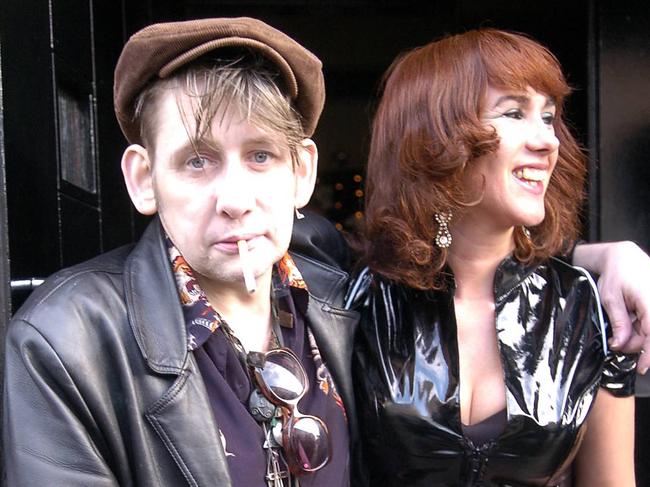
The tune fell foul of a UK government ban that covered the broadcast of the voices of pro-Irish republican paramilitaries and their political representatives.
However the band was vindicated in 1991 when all six men saw their convictions quashed on appeal, in what remains one of Britain’s worst miscarriages of justice.

SUBSTANCE ISSUES
The Pogues’ hedonistic heydays were regularly hamstrung by MacGowan’s erratic, drink-fuelled behaviour.
He was ejected from the group in 1991 — three years after their highest charting album If I Should Fall from Grace with God.
In 2004, MacGowan said he “was glad to get out alive”.
He continued performing with a new group as Shane MacGowan and The Popes, before rejoining The Pogues on stage for a time.
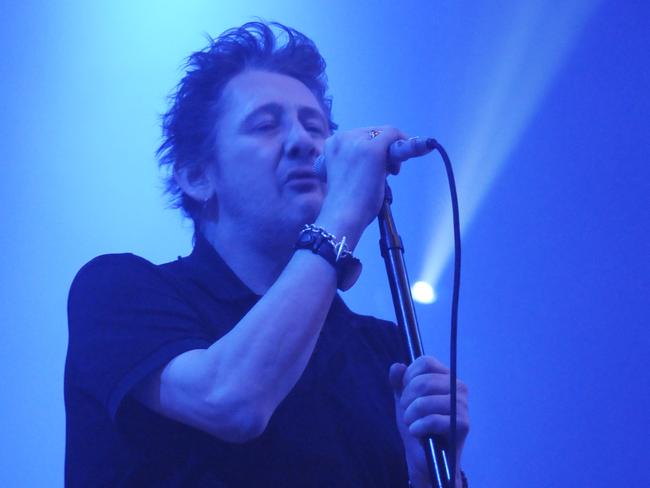
However his public reputation remained sealed as a heavy-drinking, drug-using rebel.
In 2016, MacGowan’s wife Victoria reported he was finally sober, if a shadow of his former self, and even had his trademark rotten teeth restored.
The dentist responsible, Darragh Mulrooney, gave the singer 28 teeth on a titanium frame in a procedure that took nine hours and was dubbed “the Everest of dentistry”.
In recent years, MacGowan struggled with poor health, and used a wheelchair after breaking his pelvis in a fall in 2015.
In January 2023 he confirmed he had the brain condition encephalitis, which led to several stays in hospital intensive care.
- with AFP




